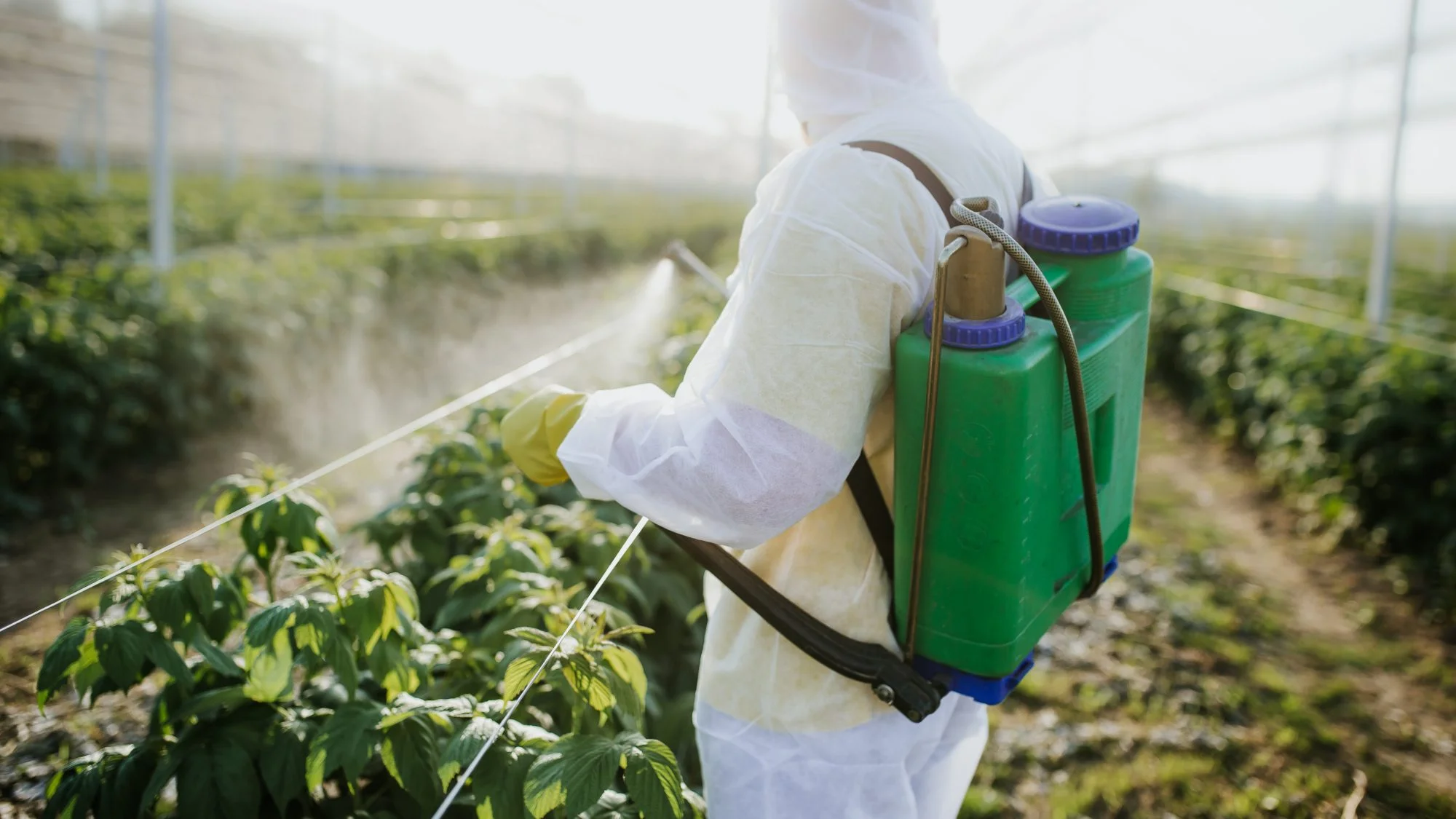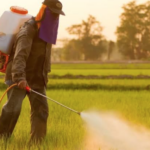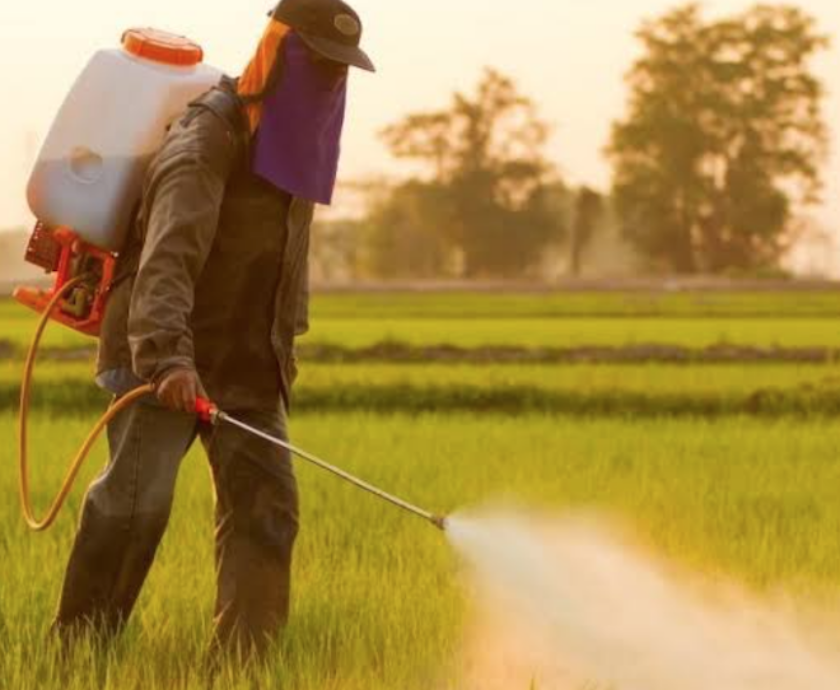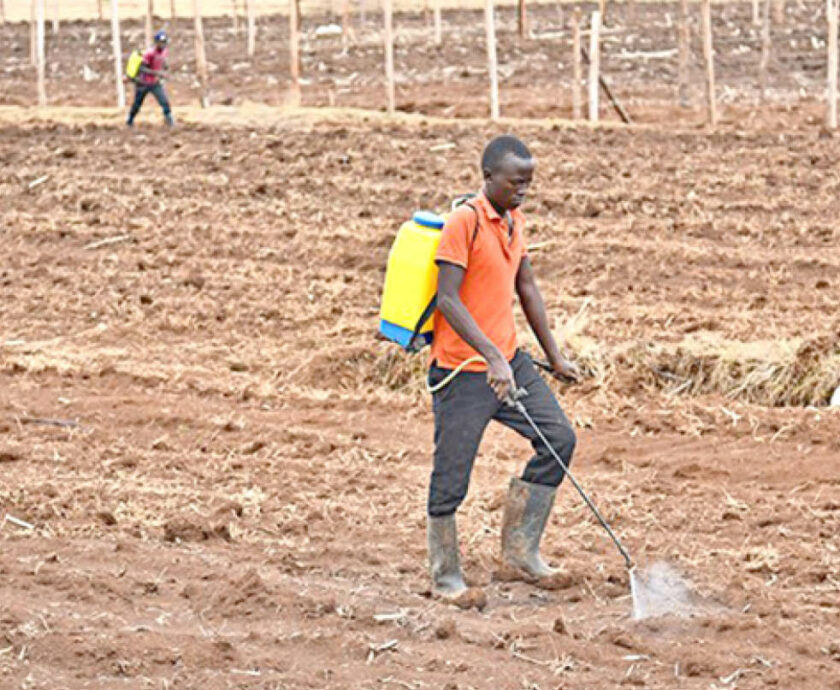In what has become alarming, the use of pesticides by farmers in Nigeria has over the years increased tremendously to about 41 per cent. And this, stakeholders say, has a vast implication for everyone: BENJAMIN UMUTEME reports.
What is meant to benefit mankind as the ever increasing task to feed the over 7 billion people on the surface of the earth becomes more demanding is now a source of concern. Initially when it was introduced, it was meant to fight weeds, increase yield among several other reasons, but with time, the effects on not just the farmers but on the environment and the final consumer has drawn attention on the need to tread cautiously in the use of pesticides.
However, before we delve into the crux of the matter, what can be termed a pesticide?
To simply put it, pesticide is any substance or mixture of substances natural, organic or man-made, used to prevent, destroy or manage pests. Different types of pesticides target different types of pests. For example, insecticides target insects, herbicides target weeds, and fungicides target fungi that may cause plant diseases. And they can either be synthetic/chemical pesticides or bio/organic pesticides.

Impact of indiscriminate pesticide use
Pesticides can be classifies into extremely hazardous, highly hazardous, moderately hazardous, slightly hazardous, and unlikely to present acute hazard.
The farming world has with glee engaging in the increasing use of pesticides with the hope that it would yield to greater yield but ironically, it has not, rather, there is increasing hunger.
According to the World Health Organisation (WHO), the number of pesticide poisonings is increasing dramatically worldwide. The UN agency estimates that across the globe, 385 million farmers were victims of acute poisoning in 2019 most of them in Asia and Africa. The Organisation noted that while developing countries use only 25 per cent of chemical pesticides that are produced globally, they bear the burden more as 99 per cent of pesticide deaths occurred in developing countries.
What many have been unable to come to term with is that while 62 per cent of the Highly Hazardous Pesticides are banned in Europe, they are Nigerian regulatory authorities’ still give approval for Nigerian firms to import them into the country.
Data from the Food and Agricultural Organization (FAO) revealed that Nigeria spent the sum of $384 million in 2018 to import pesticides into the country. While in 2020, records showed Nigeria as the largest importer of pesticides in the continent as it imported 147,477.
The implication is that lost about $362.5m annually in the last eight years to rejection of Nigeria’s beans that were exported.
Programme Manager, Heinrich Böll Foundation Nigeria, Donald Ikenna Ofoegbu, in his presentation at the titled Time for a Detox in Agriculture in Nigeria, at the Two-Day Engagement Workshop with Social Media Influencers/Journalists on the Nigeria Pesticide Atlas at Agro forestry Project farm in Kwali, in the Federal Capital Territory (FCT) Abuja, explained that the beans were banned because the “beans were found to contain between 0.03mg kilograms to 4.6mg/kg of Dichlorvos; a pesticide activity ingredient ban in the EU since 2006 and many other countries (like Japan, China, India, Canada, Australia, etc) due to its health and environmental.
“In 2013, 24 agro-products exported to the United Kingdom were rejected, the figure increased to 42 in 2014. In 2016, 24 exported food products were also rejected,” he said.
Even the environment has not been spared the impact of indiscriminate use of pesticides. There has been a drastic reduction in pollinators which taken a toll on yields because it is dependent on pollinators. Also, it is to be noted that integrated pest management is depended on insects and insects are now in short supply due to heavy use of pesticides. In addition, the quality of water has reduced significantly among many others.
For the Director, Heinrich Boll Foundation Nigeria, Jochen Luckscheiter, the increasing use of pesticides has not led to increase in food production.
According to him, rather than increase productivity, the increasing use of pesticides by farmers have long term consequences on soil.
“But in Nigeria, we see that over the years, despite increase in the use of pesticides, production has not necessarily increased. Obviously, there are many factors that influence agriculture productivity. We also know that there are many programmes in the country that have led to increase in the use of pesticides but not productivity.
And our argument has been that you may be able to increase productivity on the short term relying pesticides, artificial fertilizers to boost your production but in the longer term, your soil will be weakened and will be less productive. You will have to invest even more in fertilizers and pesticides. We have modules like agricology which is been practiced her at the farm. They take a longer time and can sustain productivity for longer term.”
In the same vein, National President of Agriculture Graduates Association Of Nigeria (AGAN) Dr. Mike Egbota, said the negative impact of indiscriminate pesticide use is not only seen in the decrease of insects in farms but also on the long term effect on the soil
“If you come to the field you will realize that there are two types of insects-beneficial and destructive. Some of them come to destroy crops while some are beneficial. And when you use these pesticides to kill them, you are killing both the bad and the good ones. And if you look at its effect on the soil, you will discover that most of these pesticides are produced with chemicals that are sometimes injurious to health both for human beings, livestock, of plants and soil.
So, most of these chemicals accumulate on soil over a long time they form what is called acid rain in the soil. And that has a negative impact on the food we produce and that is why some people are suffering from health consequences,” he said.
Increasing regulation
Experts have argued that the lack of capacity of agencies responsible for the regulation of pesticides’ use in Nigeria is fueling its indiscriminate use. While the use of pesticides is not bad in itself, the uncontrolled use has seen an increase in the negative impacts all around use.
Experts have opined that the body (NAFDAC) responsible for regulating the use of these toxic pesticides is not doing enough. This they say can be seen in the number of people that have lost their lives in the last couple of years.
Studies have revealed that more than half of the pesticides registered in Nigeria have been phased out in the European Union.
According to a recent survey, from 2022 till date, about 300 hundred people have died of cancer as a result of some of the highly hazardous pesticides that they have been using.
Executive Director, Chen Education and Development Empowerment (CEDE), Cynthia Anaele, says lack of a law regulating the indiscriminate use of these chemicals have not ameliorated the situation.
For Anaele, there is a need for the government through NAFDAC to come up with a law that would enable violators to be prosecuted.
“Also, looking at it further, we found out that we don’t have a law around regulation, and of course, you cannot persecute anybody based on regulation except law. We are also seeing how we can create this awareness so that we can push just like we pushed for the PIB, so that we can have a law around pesticide control in Nigeria. So, we can begin to persecute people that refuse to obey the rules especially from NAFDAC.
“How the bodies that regulate check the import of things they regulate? We are engaging with the regulatory bodies and that is why we are engaging NAFDAC. They’ve been able to tell us some of the things they have been doing. They have a timeline that they follow before they phase out any pesticide,” she said.
While Luckscheiter wants NAFDAC to go a step further and be more aggressive in their regulatory duties.
“And I think NAFDAC could be more ambitious and aggressive in phasing out. They are great but we think they could be more ambitious. We think there could be more stringent regulations, The HBS Country Director said.
‘Changing approach’
CEDE Executive Director said there is need for a new approach to creating awareness on the dangers of high pesticide use.
She noted that overtime; the awareness creation has been lopsided, thus, bringing limited success. According to her, adopting a broad based approach will go a long way in the quest to pass the desired message to stakeholders.
“Before now, the awareness was actually between local farmers and the farm stakeholders but when you look at it, there are so many grammars and the local farmers don’t understand what you are saying, they don’t even understand the pesticide they are given, they don’t know how to ask questions.
“So, we want to take it to the ordinary Nigerians, so they can actually generate this conversation, create awareness and so that we can push further: look into how we can have alternatives and look into mitigating some of the highly hazardous pesticides that are pushed into Nigeria.
“We are engaging the media and enlightening Nigerians through social media through an easy to understand language,” the Executive Director said.











